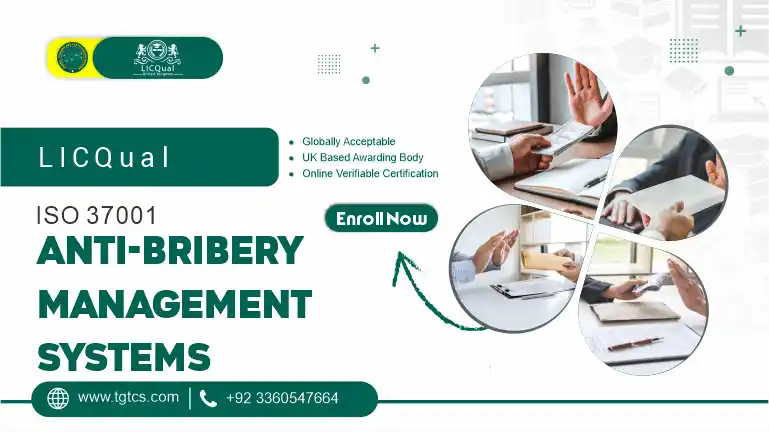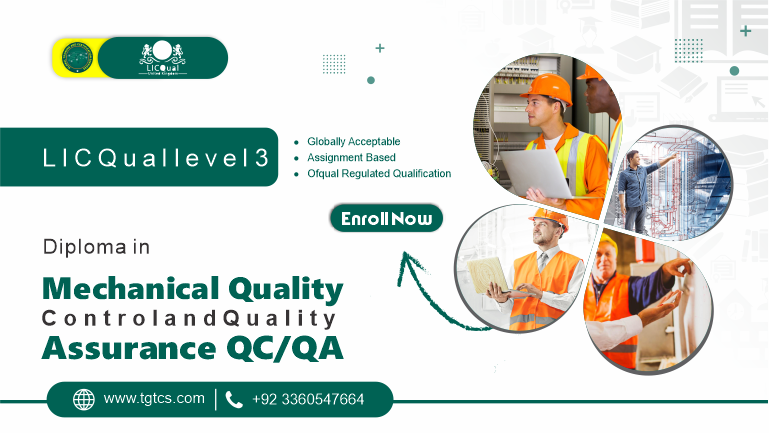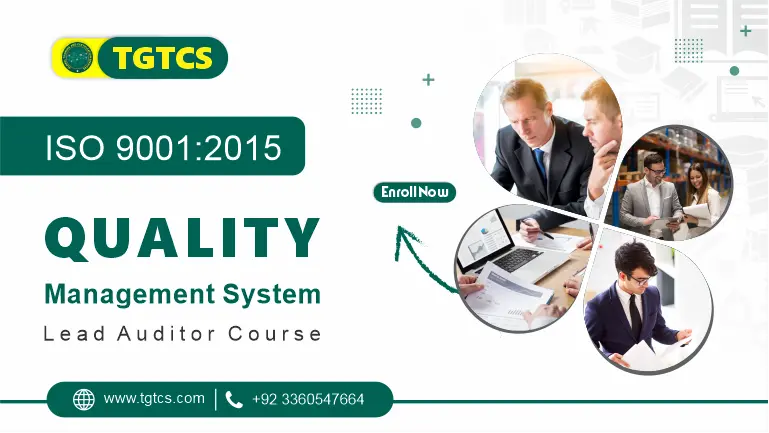LICQual ISO 37001 Anti-Bribery Management Systems
In today’s business landscape, maintaining ethical practices and transparency is more critical than ever. The ISO 37001 Anti-Bribery Management System (ABMS) provides a framework for organizations to prevent, detect, and respond to bribery. This standard is designed to help organizations establish, implement, and maintain an effective anti-bribery management system.
LICQual is a leading certification body that specializes in helping organizations achieve compliance with various international standards, including ISO 37001. By offering training and certification, LICQual empowers businesses to strengthen their anti-bribery measures and enhance their reputation in the marketplace.
Achieving ISO 37001 certification with LICQual is a strategic move for organizations aiming to foster a culture of integrity and accountability. By implementing an anti-bribery management system, businesses not only protect themselves from legal risks but also enhance their reputation and competitiveness. If you’re ready to take your organization’s ethical practices to the next level, consider enrolling in LICQual’s ISO 37001 Anti-Bribery Management Systems course today.
The Global Training and Certification Services (TGTCS) is Directly Approved Training Centre of LICQual
The LICQual ISO 37001 Anti-Bribery Management Systems course is designed to equip organizations with the knowledge and skills necessary to implement an effective anti-bribery framework. This course covers the key components of ISO 37001, including leadership commitment, risk assessment, policy development, training, and ongoing monitoring. By enrolling, participants will learn how to identify and manage bribery risks, enhance their organization’s reputation, and ensure compliance with anti-bribery laws.
The course ultimately prepares organizations to achieve ISO 37001 certification through LICQual, fostering a culture of integrity and accountability while differentiating them in a competitive market. With practical insights and best practices, this training is essential for businesses committed to ethical practices and sustainable growth.
Upon completing the LICQual ISO 37001 Anti-Bribery Management Systems course, participants will be able to:
- Understand ISO 37001 Requirements: Demonstrate a comprehensive understanding of the ISO 37001 standard and its significance in preventing bribery within organizations.
- Conduct Risk Assessments: Identify and assess bribery risks relevant to their organization, and implement effective controls to mitigate these risks.
- Develop Anti-Bribery Policies: Create and establish clear anti-bribery policies and procedures that align with ISO 37001 requirements.
- Implement Training Programs: Design and execute training programs to raise awareness among employees about anti-bribery measures and their roles in compliance.
- Monitor and Review Systems: Develop strategies for monitoring and evaluating the effectiveness of the anti-bribery management system, ensuring continuous improvement.
- Facilitate Internal Audits: Conduct internal audits to assess compliance with ISO 37001 and identify areas for improvement.
- Prepare for Certification: Understand the certification process and prepare their organization for successful ISO 37001 certification through LICQual.
- Promote Ethical Culture: Foster a culture of integrity and accountability within their organization, enhancing overall ethical business practices.
These outcomes equip participants with the skills and knowledge necessary to implement an effective anti-bribery management system, contributing to a more ethical organizational environment.
Mandatory Units
- Introduction to Anti-Bribery Management Systems
- Overview of ISO 37001: Key Concepts and Requirements
- Establishing an ABMS: Policies, Procedures, and Controls
- Risk Assessment and Due Diligence Processes
- Implementing Anti-Bribery Training and Awareness Programs
- Monitoring, Measurement, and Continuous Improvement
some key benefits of taking a course on ISO 37001 Anti-Bribery Management Systems:
- Enhanced Understanding of Anti-Bribery Principles: Gain a comprehensive understanding of anti-bribery laws, regulations, and standards, specifically the requirements of ISO 37001.
- Improved Compliance: Learn how to implement effective compliance measures to prevent bribery, reducing the risk of legal repercussions and penalties.
- Risk Management Skills: Develop skills to identify, assess, and manage bribery risks within your organization, enhancing overall risk management practices.
- Organizational Reputation: Strengthen your organization’s reputation by demonstrating a commitment to ethical practices and integrity, fostering trust among stakeholders.
- Implementation Strategies: Acquire practical strategies for developing and implementing an anti-bribery management system tailored to your organization’s needs.
- Employee Awareness and Training: Equip yourself with the tools to train employees on anti-bribery policies, ensuring everyone understands their roles in maintaining compliance.
- Auditing and Monitoring Techniques: Learn how to conduct audits and monitor the effectiveness of your anti-bribery management system, ensuring continuous improvement.
- Global Best Practices: Access insights into global best practices for anti-bribery management, enabling your organization to align with international standards.
- Stakeholder Confidence: Build confidence among clients, partners, and investors by showcasing your commitment to anti-bribery measures and ethical conduct.
- Professional Development: Enhance your career prospects by gaining specialized knowledge and skills that are increasingly valued in today’s business environment.
These benefits not only contribute to individual growth but also promote a culture of integrity and transparency within organizations.
The ideal learner for a course on ISO 37001 Anti-Bribery Management Systems would typically have the following characteristics:
- Professionals in Compliance and Risk Management: Individuals responsible for ensuring that their organization complies with legal and ethical standards, such as compliance officers, risk managers, and internal auditors.
- Business Leaders and Executives: Senior management and executives looking to implement or enhance anti-bribery policies within their organizations to mitigate risk and protect their reputation.
- Legal and Regulatory Advisors: Lawyers and consultants who provide guidance on compliance issues, helping clients navigate the complexities of anti-bribery laws.
- Human Resources Professionals: HR personnel interested in fostering an ethical workplace culture and ensuring employees understand anti-bribery policies and procedures.
- Operational Managers: Managers involved in daily operations who need to understand how bribery risks can affect their specific functions and how to mitigate them.
- Auditors: Internal and external auditors seeking to understand the standards for evaluating the effectiveness of anti-bribery management systems.
- Quality Assurance Professionals: Individuals focused on maintaining high ethical standards in processes and practices across the organization.
- NGO and Non-Profit Leaders: Those working in non-governmental organizations and non-profits who want to establish robust anti-bribery measures, particularly when dealing with governmental entities or funding.
- Students and Academics: Individuals studying business ethics, compliance, or related fields who wish to deepen their understanding of anti-bribery frameworks.
- Anyone Interested in Corporate Ethics: Individuals passionate about corporate governance and ethics, seeking to promote transparency and integrity within their organizations.
This diverse group can benefit from the course by gaining practical knowledge and skills that support effective anti-bribery practices and contribute to a culture of integrity.
Course Overview
Standard Course
ISO 37001
Course Units
06 Mandatory Units
Duration
2 to 3 Weeks






